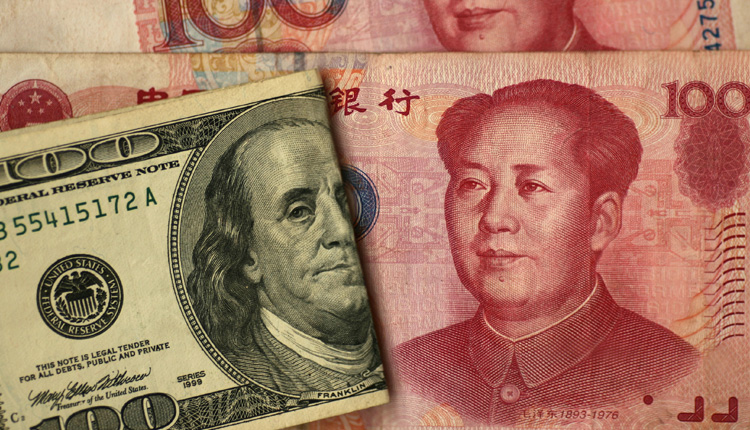Major currencies marked time on Wednesday while the Chinese yuan recovered from 11-month lows, after efforts by authorities the previous day to calm financial markets which had been rattled by worries about trade wars.
Both the yuan and Chinese equity markets have been on edge ahead of July 6, when U.S. tariffs on $34 billion worth of Chinese goods kick in. Beijing has said it would retaliate with tariffs on U.S. products.
The onshore yuan opened at 6.6365 per dollar, after hitting 11 month low of 6.7294 on Tuesday.
Ahead of the U.S. Independence Day holiday on Wednesday, the dollar was down 0.14 percent against a basket of six major currencies at 94.440, after notching up three consecutive months of gains.
China’s central bank moved to soothe markets on Tuesday after the yuan dropped through the psychologically key 6.7 to the dollar mark, hitting its lowest in 11 months as anxieties over U.S. trade frictions deepened.
In a statement posted on the website of the People’s Bank of China, Governor Yi Gang said the central bank was closely watching fluctuations in the foreign exchange market and would seek to keep the yuan at a stable and reasonable level. Cross-border capital flows were under control, Yi said.
A Chinese central bank adviser was also quoted as saying authorities did not expect significant yuan depreciation, which also helped the yuan reverse early losses to move back into positive territory.
Investors are awaiting the release of the Federal Reserve’s June meeting minutes on Thursday and Friday’s U.S. jobs data for validation of policymakers’ forecasts for two more rate hikes this year.
Valuations also remain supportive of the dollar, with its trade-weighted basket still below long-term averages.
The dollar was down 0.2 percent to the yen at 111.35 while the euro traded up 0.1 percent at $1.1665.
The Canadian dollar strengthened against greenback on Tuesday as oil prices rose to 3-1/2-year highs and domestic manufacturing data supported the view that the Bank of Canada will hike interest rates next week.
The pair last traded at C$1.3115, its highest level in 2-1/2 weeks.
Growth in the Canadian manufacturing sector accelerated in June to its fastest pace in more than seven years, the IHS Markit Canada Manufacturing Purchasing Managers’ Index showed on Tuesday.
U.S. crude oil futures settled 0.3 percent higher at $74.14 a barrel after rising above the $75 mark for the first time in 3-1/2 years. Oil is one of Canada’s major exports.
Elsewhere, the Mexican peso firmed sharply on Tuesday after the newly elected president, Andres Manuel Lopez Obrador, sought to assuage investors, magnifying a global bounce in emerging market assets.
Obrador, who cruised to victory over the weekend as the first leftist elected president since one-party rule ended in 2000, has strived to dispel fears he might be averse to private investment when he takes office on December 1.
The peso firmed 2.6 percent overnight, by far the biggest gainer among Latin American currencies, as improved sentiment over Mexico helped to magnify an emerging markets rally.
“We think the latest developments go in line with our view that Lopez Obrador will be more pragmatic than some domestic market participants expect,” said Tania Escobedo, New York-based Latam FX Strategist at RBC Capital Markets.
“We think there is space for a rally of Mexican peso in the transition period, as local retail investors that have been overweight cash and U.S. dollar should start shifting back to peso given the opportunity cost in yield.”
Source: CNBC


